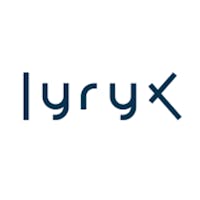For some folks in higher ed, the very idea of using open educational resources (OER) sparks dread. Visions of poorly edited texts that—when printed—turn into heaps of misformatted pages may cause professors (and students) to blurt out an immediate, “No thanks!”
But that’s not the case for James Wilson, Associate Professor at Colorado State University Fort Collins. Over the past nine years, Wilson hasn’t used a single for-profit book in his Computational Algebra classes. He and his students happily use open educational resources for textbooks.
Wilson knows how to find high-quality OER publications that deliver benefits like lower costs for students and reduce the onerous marking strain on professors. He also knows that the right OER provides professors opportunities to teach the latest research and even make areas like math and science more inclusive by moving away from traditional texts and homework assignments that often lack diverse perspectives.
Recently, Wilson sat down with EdSurge to discuss why he believes that more professors should adopt OER. He also shared his preferred place to find quality resources.
EdSurge: Why are you such a proponent of OER in higher ed?
Wilson: Good OER publications have so much more to offer students and professors! They cost less, the content is more up-to-date, they offer high-quality online homework, and they provide an alternative to a broken publishing model.
When you look at the courses we teach on repeat, with the same expensive book, it's difficult to believe that every instructor, en masse, somehow agreed to use the same text from the one large publisher year after year. Is that really what’s best for students? If we invest time thinking about which books we need and consider, "What would help me be a better teacher to these students?" OER pops to the top of that list without much effort at all.
Here’s how I look at it. As a student, I didn't have much money. I was working my way through college, and I paid a lot for books. Teacher after teacher didn’t use the material in the book. And they weren't great books anyway. Now that I’m choosing the books, I have a responsibility not to repeat that.
What does the cost difference look like with OER?
At Colorado State, we partner with Lyryx. So, the digital textbooks are free—or students can pay to print them; Lyryx prints well. It's a quality edited book, and the online homework is integrated into the text. Students can access the online homework system for free on campus through the Free Lab option or pay around $40 to access the homework off-campus.
Before this, the standard book our university used retailed at $100+ per semester. Then, online grading would be another $40. Students were spending $100, $150, and in other courses like biology and chemistry, that number goes to $200 or higher.
Now, our students can use the book and online homework completely free. Most of them pay to access the homework at home, but we’ve still reduced the cost by about a third. We estimate that, for every coordinated class of 200 students, we save them a combined amount of about $15,000.
What are your key considerations when looking for a high-quality resource?
The OER publications coming out are just getting better and better each year, but you need to invest the time in finding what’s right for you and your students. You can’t wait until the last minute or just pick the first thing that comes to mind or something un-reviewed. Primarily, I would say it starts with knowing the resource has high-quality editorial that's been reviewed.
Many knowledgeable people are creating OER, but they may not have several years of teaching experience. They may not have thought of the downsides of sequencing differently or the benefit of using different metaphors to explain something to students from diverse backgrounds. They may have overlooked the effort it takes to make homework assignments that have graduated difficulties for students first coming into an area.
Then, online homework grading for a technical science book is enormous. It's tough to teach the scale of classes that we're required to teach without it. But the types of questions in the Lyryx products I've used fit the kinds of things I would grade for, too. They found creative ways to ask questions that let the students show conceptual understanding. I feel like it's reasonable to partner that with regular, written grading that happens just at a smaller scale. It's much more sustainable.
You advocate for OER even outside of your own classes. What’s your big-picture vision for how OER can impact students and learning?
Colorado State is a large public institution. We serve quite a large, diverse population. Many here are first-time university students that don't have a family member who's been to a university before. Many of them are coming in with financial difficulties, and they're paying their way as they go. I can relate to that; it's how I went through college.
The sciences tend to have a lot of fees related to classes, and that can deter students. If we don't do something to lower that bar, a single cultural perspective will continue to dominate the sciences. It's just what's going to happen. OER can help us move away from that with lower costs and opportunities to use new texts written by people of more diverse demographics.



